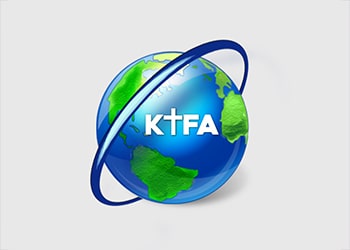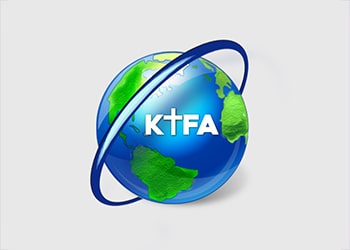Baghdad – 964
On Thursday, the US ambassador to Baghdad, Alina Romansky, commented on the reason for her recent tour of Iraqi politicians, and announced that Washington was ready to help Baghdad in the water file with the upstream countries. She also indicated that Iraq’s adoption of the legitimate banking system guarantees the stability of the dollar’s exchange rates.
And Romansky mentioned in an interview with the journalist Saif Ali, followed by 964 Network :
I went to my summer vacation in America and spent a good time, and I returned to Washington to prepare for important meetings on the seventh and eighth of August, for the benefit of the ministries of defense between the two countries, and the meetings ended and I returned to Baghdad and I thought that I had to meet the Iraqi political leaders and follow up on matters with the Prime Minister and understand what was going on in The five weeks I was away from them.
We will follow the provincial council elections and the extent to which they are free and fair, as well as the Kurdistan Parliament elections, and then the parliamentary elections, all of which are signs of a healthy democracy.
There are several reasons that cause the dollar to fluctuate against the dinar, including the existence of a parallel financial system, and the presence of smugglers and money launderers, which leads to an increase in the price of the dollar.
Returning to a legitimate banking system can create exchange rate stability.
I think there is a misunderstanding about the 14 banks, as no sanctions were imposed on them, but these banks are not allowed at the present time to deal in dollars.
The Iraqi military delegation and the Washington meeting
This is the first joint military interaction that takes place under the government of Mr. Al-Sudani between high-level officials in the ministries of defense of the two countries. When Minister of Defense Austin came to Iraq in March, he called on the prime minister to send a delegation to Washington to talk about several issues.
We focused on two important points in the last dialogue, how do we continue, build and deepen security relations under the Strategic Framework Agreement, and how do we continue to build that between our security forces in order to improve and build security in Iraq.
The second part was definitely America’s participation in the coalition to defeat ISIS and how we continue to support this activity with our partners, the Iraqi security forces, in order to continue defeating ISIS, and we focused on these two points in the meeting of the two delegations.
US sanctions on Iran and their impact on Iraq
For several years we have been providing Iraq with expenses to buy electricity from Iran and we have arranged and given exceptions for the Iraqis to pay money through restricted accounts in the central bank and we continue to make these exceptions for Iraq knowing that Iraq must continue to receive electricity.
Part of the policy and goal in supporting energy independence is that Iraq does not have to rely on an unreliable energy partner, and we encourage building a large network with others in the region to develop its energy and be able to provide it to the Iraqi people, and therefore we continue to support the modernization of electricity in Iraq.
Washington’s position on the oil-for-gas barter
Our coordination targets electricity payments and the arrangements go back several years and do not include the exchange of oil or anything similar. We are studying what appears to be a proposal drawn up by the Iraqi government, but the details should be known from the Iraqi government.
Climate change
Iraq is facing a major challenge with regard to climate change. One of the ways the United States is doing to help Iraq is in the water sector. We realize that Iraq has challenges with upstream countries and we can play a diplomatic role to solve some problems, but it is important for Iraq to have the ability to manage its resources. Our main institution that helps in this modernization and development and finding solutions to this situation is the US Agency for International Development, and we have many projects that support solar energy and we have projects that support the Ministry of Water Resources.
The US ambassador commented on the news of a US military build-up to cut the border between Iraq and Syria, stressing that “these issues were discussed between the US and Iraqi Ministries of Defense,” which had been previously denied by the Prime Minister’s advisor, Mohamed Shia’a Al-Sudani.
A member of the Parliamentary Security Committee, Waad al-Quddo, had said earlier that the meeting between the US and Iraqi defense ministers in Washington witnessed a discussion of the movement of the US military build-up to carry out the “mission of cutting the borders between Iraq and Syria,” but the Sudanese advisor denied this.
Ambassador Elena Romanowski’s statements were identical to those of Al-Quddo, as she said in an interview with journalist Saif Ali, that “military activity is part of the natural rotation of American forces to and from Iraq, and these issues were covered when the meeting was discussed.”
In another matter, the US ambassador responded briefly to the Iranian ambassador in Baghdad accusing the US of using the electricity card to delay the street.
In his interview with the ambassador, journalist Saif Ali read a statement by the Iranian ambassador saying that Washington is using the electricity card to fuel the street, and Romanowski responded by saying, “This is what the Iranians are doing.”
The ambassador denied the existence of any American objection to the visit of Iraqi Prime Minister Muhammad Shia al-Sudani to Washington, and said:
The current prime minister is going to New York to participate in the United Nations General Assembly meeting, they told me.
You can check with the prime minister’s office about that.
In the US, there is no decision to prevent the Sudanese prime minister from visiting Washington.
It is important that we agree on a schedule that fits the dates of the leaders, and we discuss when the visit is appropriate for both parties.





